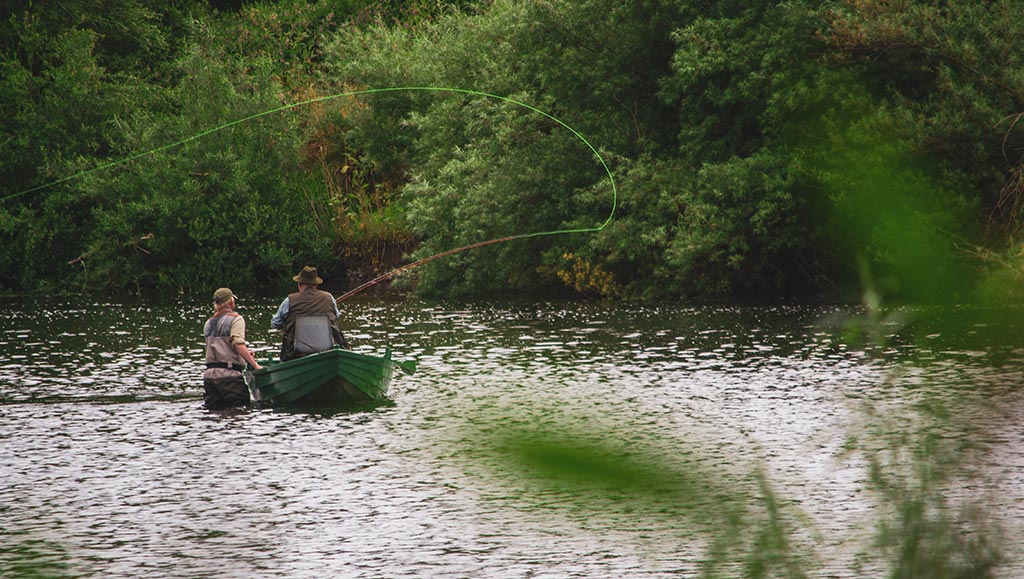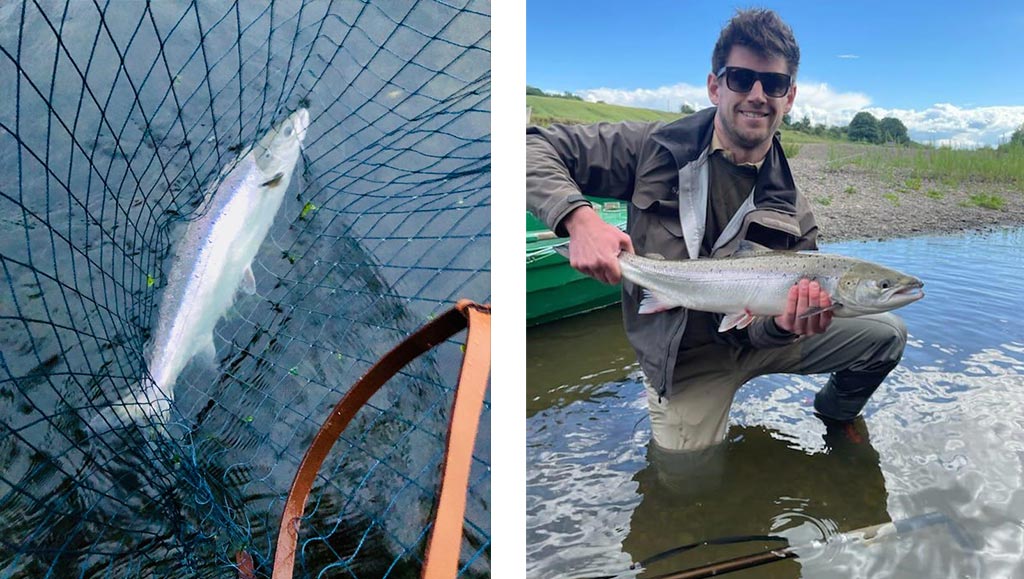2022 Review
A record season with fantastic Autumn highs at Milne Graden.
A strong September saw a total of 79 salmon caught. The high numbers suggest the fish were easy to catch; they weren’t! By this point in the season, salmon have been in the Tweed a while, spotted every fly under the sun, and learnt how to play with them before spitting them out (rather naughty). With the first rise of water, at the start of September, temperatures dropped and the fish started taking the fly with a lot more vigour.

Fish like these require craftsmanship to land; hand lining and working the fly. In addition, it helps to ensure that the fly fishes deep to reach the fish. A heavier line means harder work for perhaps those more novice fishermen. Mr Bramble’s party, clearly experienced sportsmen, stood out as an impressive team with some fantastic results.
Woodend, a spot some might call a hidden gem, with slow moving water certainly performed well. Four salmon brilliantly caught on 14th October by actively working a Francis. It helps enormously to be comfortable hand lining as Mr P. Jenkins showed us on 15th October – eight fish were caught on his rod (only one single figured fish), which included a mighty 25lb cock fish. Well done!
A note for those who like to be a ‘master of their trade’ – it might not be a bad idea to book a rod in the early season down time (February), simply to improve your hand lining technique, spend some useful time with the head ghillie Kev the Hat and relearn the water with a view to taking a few rods later in peak season… best to be prepared for all eventualities.
Too many floods at the back end of October meant that we lost ‘residents’. The final fish was caught on 17th October down at the Croys, an 18lb cockfish in 2’7” rising water. Since then, average heights have been at 3’ and rising. Early November saw a high of over 6’.
Milne Graden had a cracking Autumn, with catches not experienced since before head ghillie, Kev the Hat, joined the team – in all his experience on the Tweed he has never seen anything like it.
10 fish in 11 takes! What a ratio!
The smiles on those fishermens’ faces were something to behold.

Earlier in the year saw its ups and downs.
Expectations were high for a good 2022 Summer season, if previous years’ catches set the trend. 39 salmon were caught in August 2020 and in July and August 2021 a total of 58 was reached. July and August this year only saw a total of 48 fish – an impressive catch figure given the Summer water conditions.
Very low water levels along with enough algae to send you mad, tested the patience of keen fishermen. Reeling in algae at every cast is not only irritating but the thought that the salmon can’t see the fly can start to wear one down. Fishermen and women however are unique souls – some might say utterly bonkers – all fiercely determined!
So, well done to the fishermen who stuck it out during the challenging Summer months when most had packed in and returned to their cottages. We would like to give a special mention to Mr. Basil Kinch and his friend Mr. Peter Avery and Mr. Tim Foster for catching four grilse amongst the worst of the algae in mid-July.
In May, whilst numbers for seatrout weren’t strong, they were definitely in the water. Best fishing could be found early evening when most fishermen had headed home for a dram. Wise fish!
Numbers rose in June where we saw some beautiful springers caught by Mr. Bob Miller and Mrs Lydia Dahlin, with the highlight being on the 21st June when five seatrout, two grilse and two salmon were joyfully celebrated.
 Downtime
Downtime
Winter will see preparation for the year ahead. Boats will be brought inside, dried out and have some TLC: cleaning, sanding, repairs, ready for next year’s batch of fishermen. The Fishing sheil decking will also receive some repair work.
To finish, some advice for next year:
· Use Winter to prepare fishing tackle
· Sort flies and lines out
· Some people like to buy new nylon every year (you would hate to loose a fish because of old nylon!)
· Check your waders (it’s worth getting any little tears repaired)
· Don’t only book one day – book minimum of two or better still three – this gives you a good amount of time to read the water and take on board inside info to be able to apply to your fishing
 So, book for next year and make a game plan to see your sporting experience improve! The beat continuously evolves and takes a new energy year on year, defined by conditions and the surrounding wildlife. Being part of this process is rewarding beyond measure.
So, book for next year and make a game plan to see your sporting experience improve! The beat continuously evolves and takes a new energy year on year, defined by conditions and the surrounding wildlife. Being part of this process is rewarding beyond measure.
We look forward to seeing you next year at Milne Graden.
Georgie and Kev the Hat.